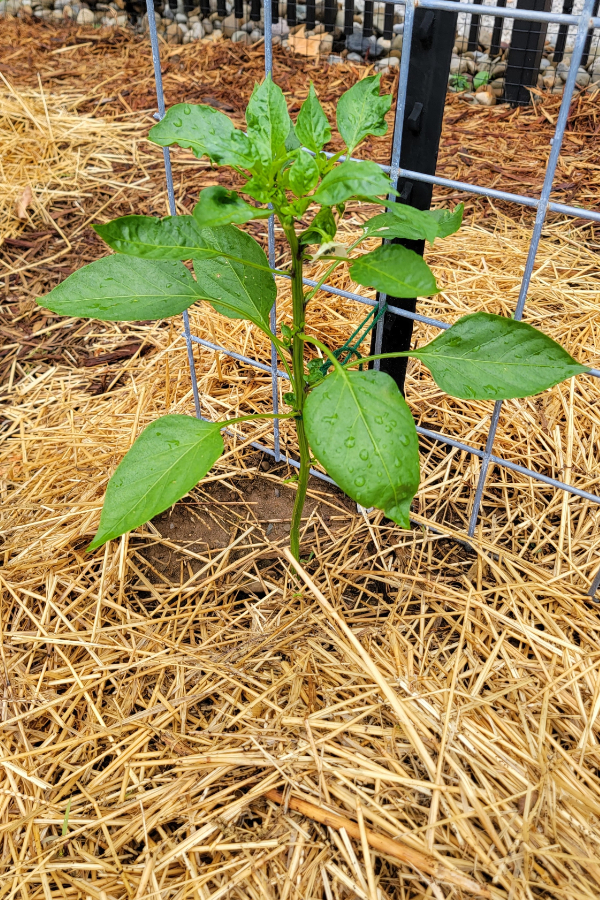Organic Vs. Synthetic Fertilizers: Which Is Best for Nurturing Healthy Pepper Plants?
In the realm of nurturing healthy pepper plants, the selection between natural and synthetic plant foods stands as a crucial choice with far-reaching ramifications. While both choices purpose to offer essential nutrients to support plant growth, the nuances of their effect on the dirt, plant health and wellness, and the atmosphere spark a dispute that mirrors throughout the gardening area. Comprehending the distinct benefits and possible risks of each fertilizer kind is vital for pepper growers looking for to enhance their returns while preserving an eco-conscious and sustainable approach.
Advantages of Organic Fertilizers
Organic plant foods offer a lasting and environmentally-friendly strategy to nourishing pepper plants, giving necessary nutrients without the use of artificial chemicals. These natural plant foods are originated from natural resources such as garden compost, manure, bone dish, and seaweed, advertising soil wellness and biodiversity. Unlike synthetic fertilizers, natural choices launch nutrients gradually, making sure a balanced and constant supply for pepper plants to flourish.
One considerable benefit of organic fertilizers is their capacity to enhance soil framework and water retention. By enhancing dirt wellness, natural fertilizers advertise advantageous microbial task, which helps in nutrient uptake by pepper plants. In addition, organic plant foods reduce the threat of chemical run-off, securing water resources from pollution and securing the setting.
Moreover, natural fertilizers add to lasting soil fertility by advertising the development of advantageous dirt microorganisms. These organisms help damage down natural matter, releasing nutrients in a type that is conveniently accessible to pepper plants. best fertilizers for peppers. By cultivating a healthy soil community, natural plant foods support lasting pepper farming practices that benefit both plants and the environment
Drawbacks of Synthetic Fertilizers
Synthetic fertilizers, as opposed to their organic counterparts, position different drawbacks when utilized to nourish pepper plants, affecting both plant health and environmental sustainability. One major drawback of synthetic fertilizers is their propensity to seep nutrients from the dirt promptly. This quick leaching can bring about vitamins and mineral imbalances in the dirt, creating plants to experience toxicities or shortages. Furthermore, synthetic plant foods can hurt useful soil organisms, such as earthworms and valuable microorganisms, interfering with the dirt ecological community's equilibrium.
Furthermore, the overuse of synthetic plant foods can add to water air pollution. Excess fertilizers not absorbed by plants can remove into water bodies, bring about eutrophication, where algae flowers diminish oxygen levels in the water, damaging water life. Furthermore, artificial plant foods are normally originated from non-renewable sources, such as fossil fuels, adding to carbon emissions and ecological degradation throughout their manufacturing.
Nutrient Absorption Contrast
When contrasting artificial and organic plant foods in terms of nutrient absorption, natural fertilizers have the advantage of giving a more balanced and slow-release source of nutrients. Organic plant foods have a range of macro and trace her latest blog elements that are not just beneficial for the plants yet also promote healthy dirt microbial task, which assists in nutrient uptake.
Furthermore, organic fertilizers enhance soil structure and water retention capability, enabling pepper plants to accessibility nutrients extra successfully. This enhanced dirt top quality promotes origin development, allowing much better nutrient absorption. Synthetic fertilizers, although initially boosting plant development as a result of their high nutrient focus, may hinder long-term nutrient absorption by derogatory dirt health and wellness in time.
Environmental Impact Factors To Consider

On the various other hand, synthetic plant foods, although usually even more quickly offered and concentrated to plants, can have damaging effects on the atmosphere if not used properly (best fertilizers for peppers). Their manufacturing requires high power inputs, leading to greenhouse gas exhausts and adding to environment change. Additionally, the runoff of excess artificial fertilizers can pollute water sources, causing eutrophication and hurting marine environments.
Finest Plant Food Practices for Peppers
When fertilizing pepper plants, maximizing nutrient uptake and lessening ecological influence are essential factors to consider. To achieve this, it is important to follow best plant food techniques tailored to the certain needs of pepper plants. One vital practice is to do a soil examination before using any plant foods. This examination can identify the pH degree of the dirt and identify any type of nutrient shortages, leading you in selecting the most appropriate plant food solution.
One more crucial technique is to feed pepper plants at the appropriate time. Commonly, peppers take advantage of receiving fertilizer at planting and after that again when they begin to flower. Over-fertilizing can result in nutrient inequalities and damage the plants, so it you could try these out is crucial to comply with suggested application rates.
Additionally, picking a balanced plant food with an NPK proportion that fits pepper plants' requirements is basic. Ultimately, incorporating synthetic and natural fertilizers judiciously can aid nurture healthy and balanced pepper plants while reducing environmental effect.
Conclusion

Organic fertilizers use an environmentally-friendly and sustainable technique to beneficial pepper plants, offering crucial nutrients without the usage of artificial chemicals. Unlike synthetic fertilizers, natural alternatives release nutrients slowly, making sure a steady and balanced supply for pepper plants to grow.
Artificial fertilizers, in contrast to their organic equivalents, posture various drawbacks when utilized to nurture pepper plants, influencing both plant wellness and environmental sustainability. When comparing synthetic and organic fertilizers in terms of nutrient absorption, organic fertilizers have the advantage of offering a much more well balanced and slow-release resource of nutrients.Moreover, natural plant foods boost dirt framework and water retention ability, allowing pepper plants to access nutrients more effectively.